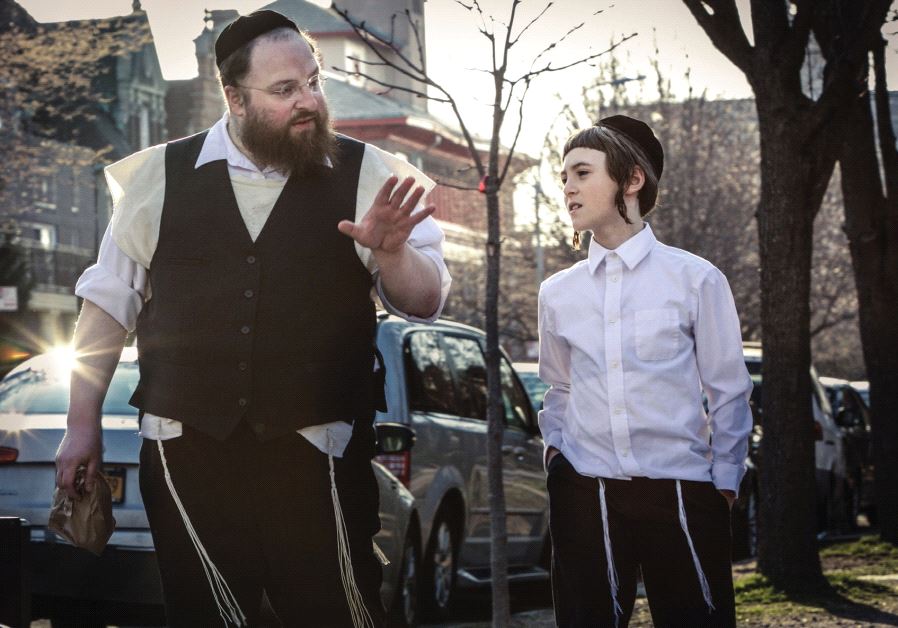Yiddish ‘Menashe’ and Israeli classic ‘Avanti Popolo’ wow Berlin audiences
Menashe tells the story of its eponymous hero, a Hassidic widower in the ultra-Orthodox neighborhood of Borough Park, Brooklyn.
 YIDDISH ACTORS Menashe Lustig (left) and Ruben Niborski star in ‘Menashe.’(photo credit: FEDERICA VALABREGA)
YIDDISH ACTORS Menashe Lustig (left) and Ruben Niborski star in ‘Menashe.’(photo credit: FEDERICA VALABREGA)